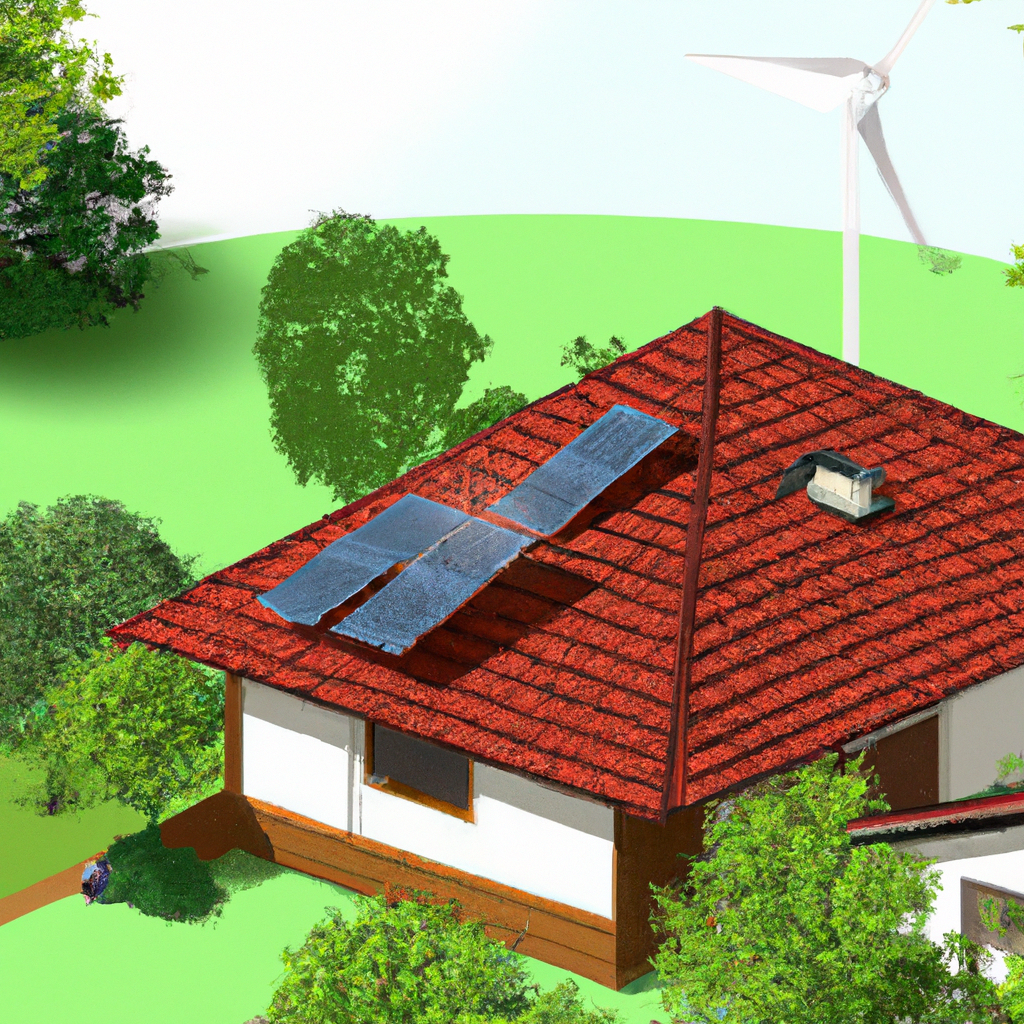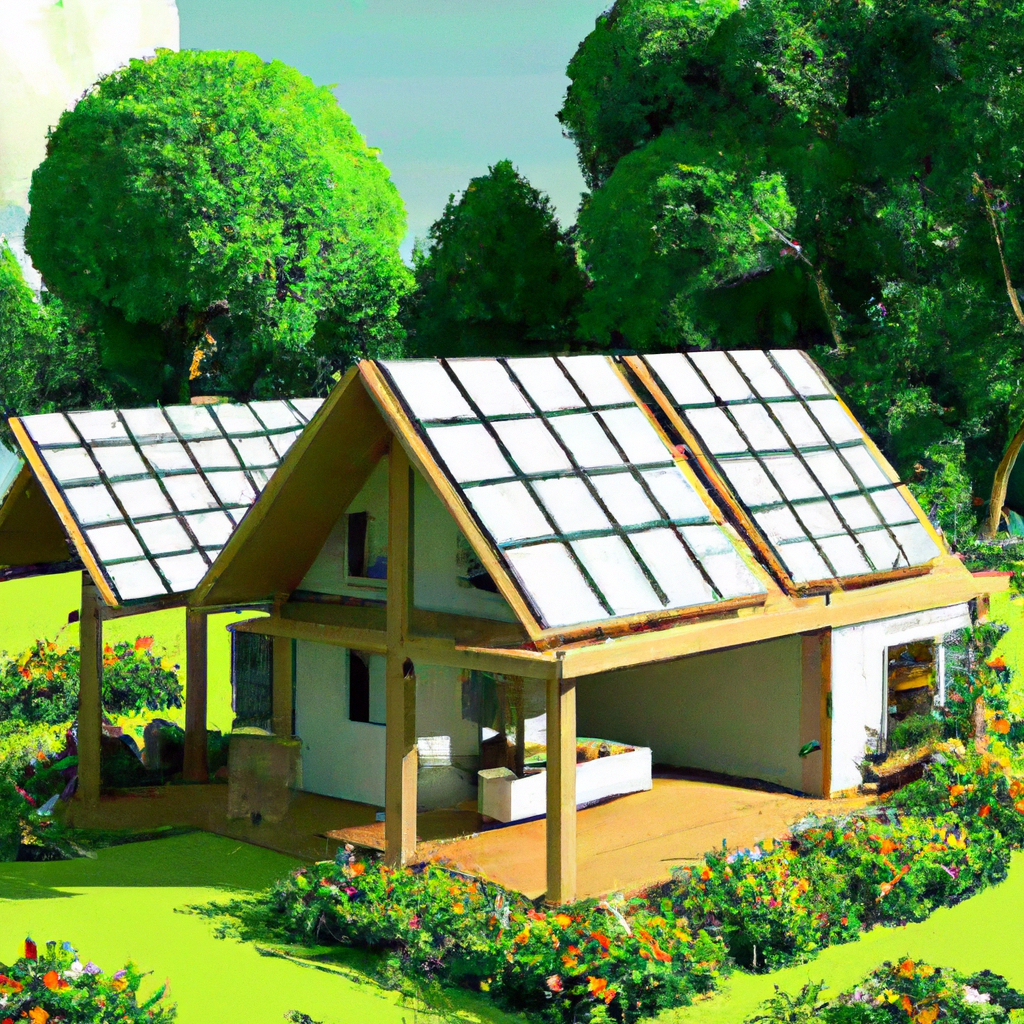Living in a self-sustaining home can be an incredibly rewarding experience, offering a myriad of benefits while presenting unique challenges. From reducing your environmental footprint and decreasing reliance on utility companies to fostering a greater sense of independence, a self-sustaining home allows you to live in harmony with nature. However, it also requires careful planning, ongoing maintenance, and specialized knowledge to ensure that all systems, such as solar panels and rainwater harvesting, are functioning efficiently. In this article, we will explore the advantages and obstacles of embracing a self-sustaining lifestyle, providing you with a comprehensive understanding of this increasingly popular alternative living option.
Benefits of Living in a Self-sustaining Home
Living in a self-sustaining home has numerous benefits that can greatly enhance your quality of life. From energy independence to cost savings, environmental sustainability, increased resilience, and improved health and well-being, there are countless advantages to embracing a self-sustaining lifestyle. Let’s explore each of these benefits in detail.

Check Out Our Top Eco Friendly Product Picks On Amazon Here
1. Energy Independence
One of the primary benefits of living in a self-sustaining home is achieving energy independence. By incorporating renewable energy sources such as solar panels, wind turbines, or geothermal systems, you can generate your own electricity and reduce reliance on external power grids. This not only eliminates or minimizes monthly electricity bills but also grants you control over your energy production and consumption. You no longer have to worry about blackouts or fluctuating energy prices. Instead, you have the freedom to harness the power of nature to meet your energy needs.
Check Out Our Top Eco Friendly Product Picks On Amazon Here
2. Cost Savings
In addition to energy independence, self-sustaining homes offer significant cost savings. By producing your own energy, you can dramatically reduce or eliminate your monthly utility bills. The initial investment in renewable energy systems may seem daunting, but once installed, they can provide long-term financial benefits. Moreover, self-sustaining homes employ energy-efficient appliances, insulation, and smart technologies that further minimize energy consumption and decrease expenses. Over time, the savings on utility bills can add up, allowing you to allocate your funds towards experiences, investments, or other priorities.

3. Environmental Sustainability
Living in a self-sustaining home contributes to environmental sustainability and helps protect the planet. The reduction in greenhouse gas emissions is a key aspect of this benefit. By utilizing renewable energy sources, self-sustaining homes have a significantly lower carbon footprint compared to traditional houses powered by fossil fuels. This shift towards clean energy helps combat climate change, leading to a healthier and more sustainable environment for future generations.
Reduced Carbon Footprint
By generating your own clean energy, you are directly reducing your carbon footprint. Traditional energy production relies heavily on fossil fuels, which release CO2 and other harmful gases into the atmosphere, intensifying global warming and climate change. Embracing renewable energy in a self-sustaining home ensures that you are actively contributing to the reduction of greenhouse gas emissions, creating a greener and cleaner planet.
Conservation of Natural Resources
Self-sustaining homes promote the conservation of natural resources. By minimizing energy consumption and using renewable resources, such as rainwater harvesting and greywater recycling systems, these homes are designed to preserve our planet’s valuable resources. Conserving water, reducing waste, and adopting sustainable practices contribute to the overall well-being of the ecosystems around us.
Protection of Biodiversity
Self-sustaining homes also prioritize the protection of biodiversity. Through organic gardening, planting native species, and providing habitats for wildlife, these homes create a harmonious coexistence with nature. By preserving natural habitats and supporting local ecosystems, self-sustaining homes become havens for a diverse range of plants and animals, contributing to the overall health and stability of the environment.

4. Increased Resilience
Living in a self-sustaining home enhances your resilience to external disruptions such as power outages, natural disasters, or fluctuations in energy supply. With your own renewable energy systems and sustainable practices, you are better equipped to withstand and recover from unexpected events. By incorporating backup power storage solutions and energy management systems, you can ensure a continuous and reliable energy supply, even during emergencies. This increased resilience provides peace of mind and a sense of security, knowing that your home is capable of sustaining itself in challenging situations.

5. Health and Well-being
Living in a self-sustaining home can have a positive impact on your health and well-being. The use of non-toxic and natural building materials in these homes reduces indoor air pollution and creates a healthier living environment for you and your family. Moreover, self-sustaining homes often prioritize natural light, fresh air circulation, and access to green spaces, promoting physical and mental well-being. The connection with nature that these homes foster can reduce stress, improve mood, and enhance overall happiness and contentment.
Lifestyle Adjustments
To fully embrace the benefits of living in a self-sustaining home, some lifestyle adjustments may be necessary. These adjustments may include adopting energy-saving habits, growing your own food, practicing mindful consumption, and being conscious of resource usage. While these changes may initially require some effort and planning, they ultimately contribute to a more sustainable and fulfilling way of life. The empowerment and satisfaction gained from becoming self-sufficient in your daily needs make these adjustments both rewarding and enjoyable.
In conclusion, living in a self-sustaining home offers numerous benefits that go beyond mere cost savings and energy independence. It allows you to contribute to environmental sustainability, conserve natural resources, protect biodiversity, increase resilience, and improve your health and well-being. Embracing a self-sustaining lifestyle not only benefits you personally but also has a positive impact on the world around you. So, why not explore the possibilities of living in a self-sustaining home and embark on a journey towards a more sustainable and fulfilling life?




